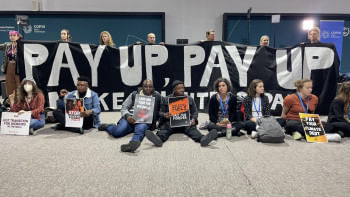Tanvir Mokammel revisiting the Liberation War

After a mega documentary on the Partition of Indian subcontinent, national award-winning director Tanvir Mokammel returns to his familiar terrain -- Bangladesh's Liberation War - for his next feature film “Rupsha Nodir BaNkey” which recently won a National Film Grant for 2017. Mokammel insists the film will look at the seminal event of 1971 from a left-wing perspective. In an interview with The Daily Star, he spoke about the film, and more. Excerpts: What is the story outline of “Rupsha Nodir BaNkey”? Is this story based on a real incident?
Tanvir Mokammel: The story is about the life and struggles of a left-wing leader killed by the razakars during the 1971 Liberation War of Bangladesh.
When do you plan to start shooting the film, and where? When do you hope to release the film?
Tanvir Mokammel: We will shoot the film in winter this year. Most of the shootings will take place in the rural areas of Khulna region. The target is to release the film in the summer of next year.
Who are in the cast?
Tanvir Mokammel: We have not yet finalised the cast. I and my film unit are now busy in the post-production works of the 1947 Partition documentary “Seemantarekhka”, as the film is scheduled to be released in August, the month of the Partition. We will then concentrate fully on the cast and the locations.
Who wrote “Rupsha Nodir BaNkey”?
Tanvir Mokammel: Yes. I always write the scripts of my own films. In fact, as an auteur film-maker, it is very important for me to visualise the scenes. So I myself always write my scripts.
Have you finalized the technical spearheads for your project?
Tanvir Mokammel: Syed Shabab Ali Arzoo will compose the music of the film and Uttam Guha will be the art director. Shabab has done the musical scores of all my films since “Nodir Nam Modhumati”.
After the documentary “Seemantorekha”, you are returning to another feature film in the backdrop of the Bangladesh Liberation War. How different will it be from your previous films on the subject?
Tanvir Mokammel: “Seemantorekha” is a documentary film and “Rupsha Nodir BaNkey” will be a fiction. So there is a big difference in the approach and also in the cinematic crafts between the two films. But if you want to compare with my previous Liberation War films, I guess “Rupsha Nodir BaNkey” will be a film more on the build-up of the war than the war itself. In this film, the Bangladesh Liberation War will be seen from a left-wing prospective.
You said “Seemantorekha” will hit the screens in August. Will it be screened in India also at that time?
Tanvir Mokammel: Yes, that is the plan.
Seventy years down the line, how relevant is the subject of the vivisection of the Indian sub-continent?
Tanvir Mokammel: Though 70 years have passed, a lot of the issues from 1947 are still alive in the polity of today's subcontinent -- like the issue of secularism and Hindu-Muslim relationship. These issues need to be addressed if we want our states and the societies to move forward. So a journey down memory lane will not harm, rather may do immense good to understand some of the present dilemmas which our subcontinent is facing now. That is the reason why I wanted to make the film “Seemantorekha” after 70 years of the Partition of the Indian subcontinent.


 For all latest news, follow The Daily Star's Google News channel.
For all latest news, follow The Daily Star's Google News channel. 



Comments